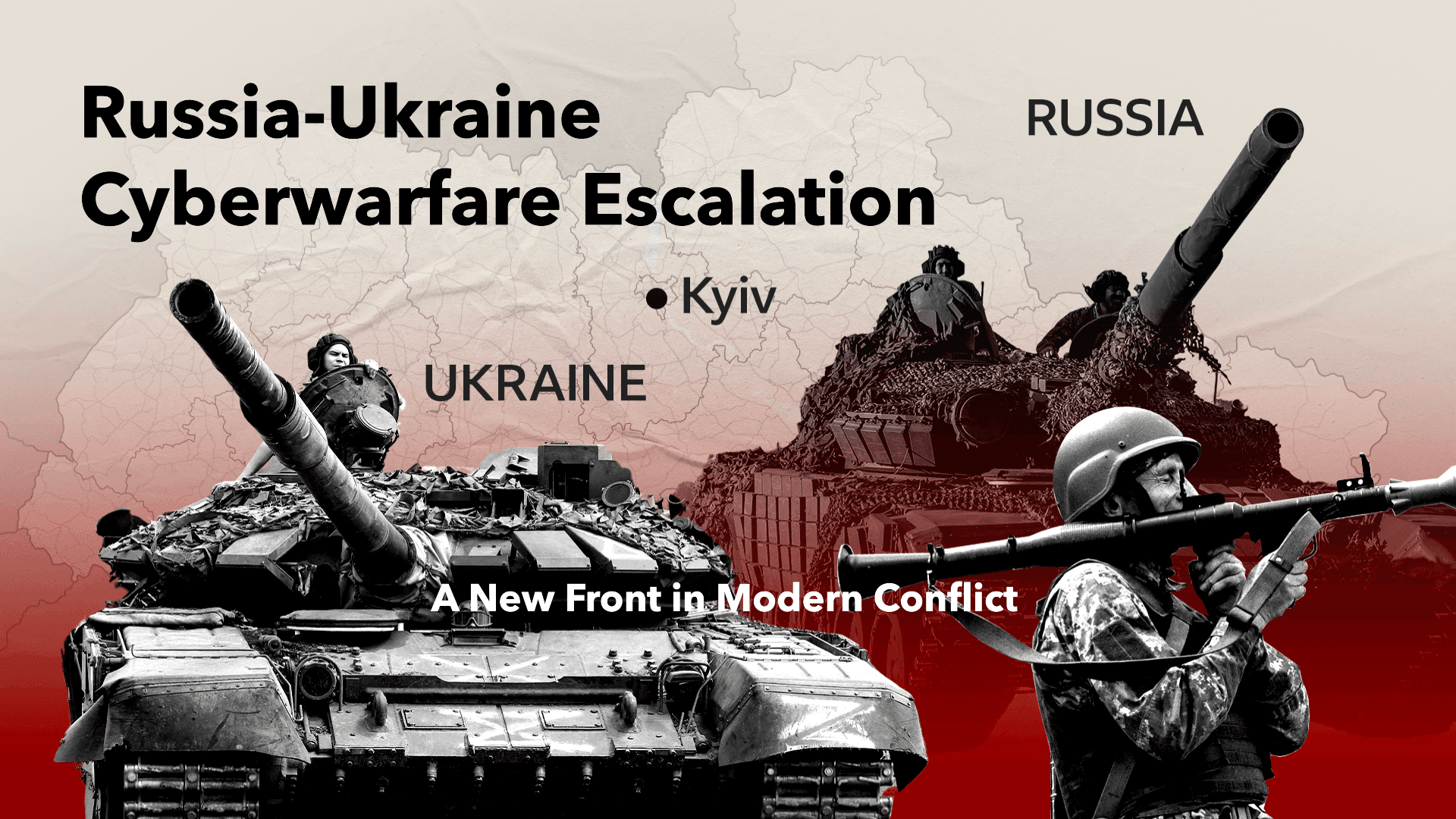As the conflict between Russia-Ukraine Cyberwarfare has emerged as a crucial battleground, with significant implications for global security. Recent reports indicate that Russia, alongside allied nations, has intensified cyberattacks targeting Ukrainian and NATO infrastructure. These attacks are not only aimed at causing disruptions but also serve as a strategic tool to weaken adversaries, gather intelligence, and destabilize political and military systems. As cyberattacks increase in scale and sophistication, the escalation of this digital conflict is reshaping the future of warfare.
The Nature of Cyberwarfare in the Russia-Ukraine Conflict

Since Russia’s invasion of Ukraine in February 2022, the digital front has become an integral aspect of the war. Both state-sponsored and independent hackers aligned with Russia have launched numerous cyberattacks on Ukraine’s critical infrastructure, including energy grids, telecommunications networks, and government databases. Ukrainian institutions, with the assistance of NATO and Western allies, have responded with countermeasures, engaging in defensive and retaliatory cyber operations.
One of the most concerning trends is the focus on critical infrastructure. In the early stages of the conflict, Russian hackers targeted Ukraine’s power grid, leading to power outages and chaos. These attacks extended to healthcare systems, financial networks, and even public transportation systems. By attacking essential services, Russia aims to undermine Ukraine’s ability to function during the war and create widespread instability.
Impact on NATO and Global Security

While Ukraine remains the primary target, NATO members and Western allies are not immune. Cyberattacks on NATO’s defense networks, financial systems, and military infrastructure have increased in both frequency and severity. Russia’s cyber operations are often aimed at espionage, with hackers infiltrating NATO systems to steal sensitive information on troop movements, military strategies, and technological developments. This not only threatens NATO’s operational security but also compromises the broader international response to the conflict.
A notable example is the hacking of satellite communications used by NATO forces, disrupting coordination and communication efforts. Such cyberattacks demonstrate that the digital front is no longer secondary to physical warfare but is increasingly becoming a primary mode of engagement with the potential to cripple entire military operations.
The Future of Cyberwarfare

The Russia-Ukraine conflict provides a glimpse into the future of warfare, where cyberattacks may play a more dominant role in geopolitical conflicts. The development of AI-driven cyber weapons, enhanced hacking techniques, and autonomous malware represents an alarming trend. Nations worldwide are likely to invest heavily in both offensive and defensive cyber capabilities to protect their infrastructure, intelligence, and military systems.
This conflict is shaping a new era where cyberattacks can paralyze entire governments without firing a single bullet. Countries such as the United States, the United Kingdom, and Germany are actively enhancing their cyber defense mechanisms in response to these rising threats. Global leaders must now prioritize the integration of cybersecurity into their national defense strategies, recognizing that cyberwarfare is not just a supplement to traditional military tactics but a critical, evolving battlefield.
Global Implications and Responses

The global implications of this cyberwarfare escalation are far-reaching. For NATO, strengthening collective cyber defense is now more important than ever. NATO’s Cyber Defence Pledge, which commits member states to improving national cyber defense and supporting allied operations, has gained renewed urgency. However, Russia’s increasingly sophisticated cyber tactics have pushed NATO to rethink its approach to warfare in the digital age.
International organizations and nation-states are also calling for clearer cyberwarfare regulations and norms to be established under international law. The challenge is that cyberattacks often operate in a gray zone, where the lines between state-sponsored actions and independent actors blur, making accountability difficult.
Efforts to establish international cooperation on cybersecurity through frameworks like the United Nations Group of Governmental Experts on Cybersecurity and European Union’s Cyber Diplomacy Toolbox are essential steps in countering these threats. Yet, the lack of binding international treaties or agreements on cyberwarfare leaves many unanswered questions on how to regulate and punish acts of cyber aggression.
Conclusion
The ongoing Russia-Ukraine cyberwarfare escalation is not just a regional concern but a global issue with severe implications for international security. As Russia continues to target Ukraine’s critical infrastructure and NATO’s military systems, the need for robust cyber defense strategies becomes paramount. This conflict has illustrated the transformative power of cyberattacks in modern warfare and highlighted the urgency for nations to protect their digital infrastructure.
For more on the future of warfare and global security, visit related articles on Epic Infinite.










